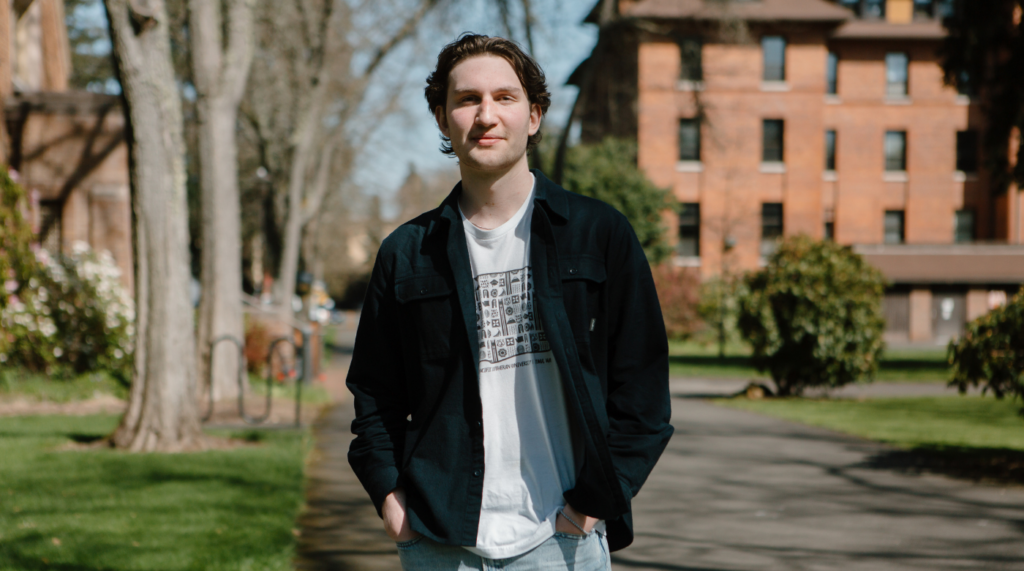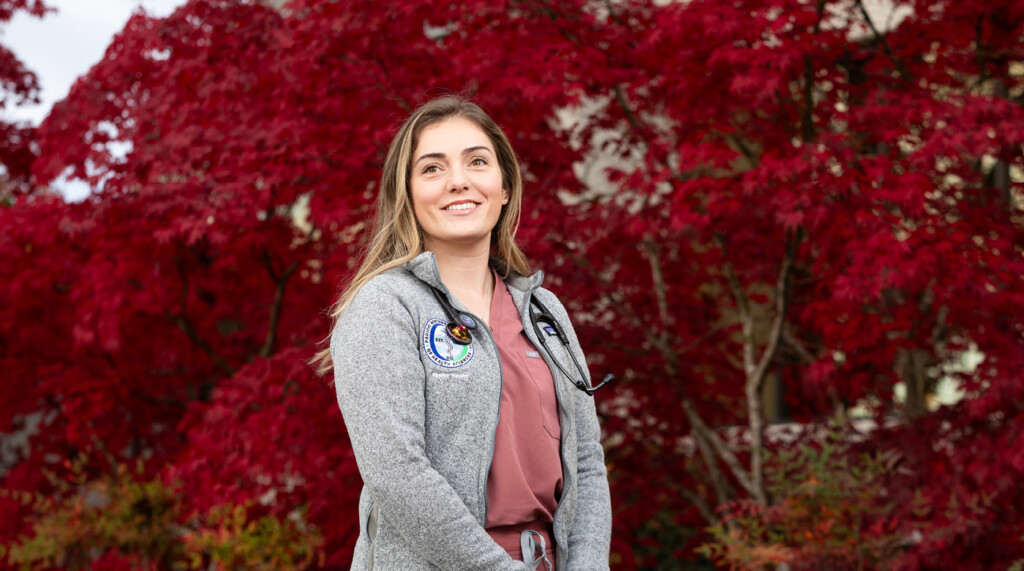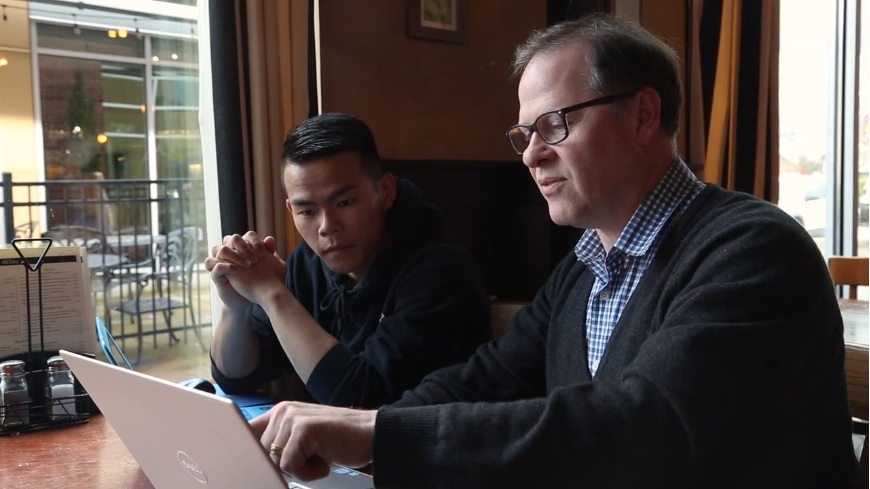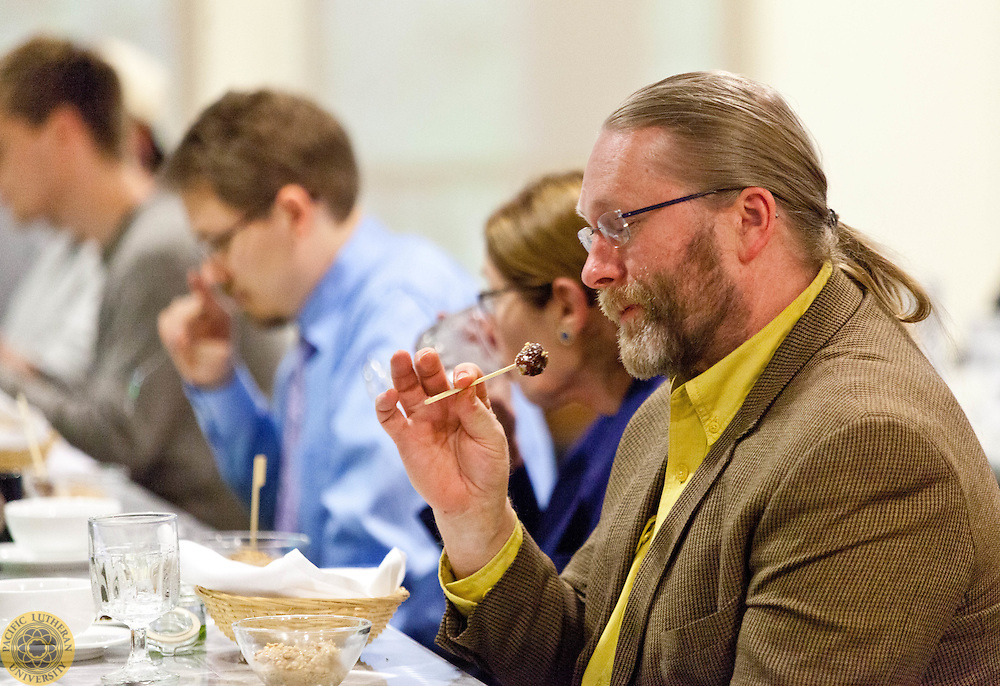Page 20 • (230 results in 0.057 seconds)
-

Michael Halvorson ’85 was a technologist before he was a historian. His PLU undergraduate degree is in computer science and he worked at Microsoft for the first 10 years of his career. He spent the next 15 years writing books about software and emerging technology.…
and strategic opportunities.What’s your advice to someone who is interested in becoming more innovative in their day-to-day life, or interested in seeing their world through a more innovative lens? I think it can start with naming creative acts when you see them and when you try them. One part of innovation is creating something new, but it is equally important to improve existing systems and maintain what we already have. If you are volunteering at a local food bank and you see a new way to
-

When PLU science students returned to campus in fall 2022 they were in for a surprise. The previously outdated anatomy and physiology lab in the Rieke Science Center had been transformed into a cutting-edge learning facility, complete with best-of-its-kind educational technology, thanks to contributions from…
.” “You can zoom in and out on different body systems,” adds Auman. “You can turn the virtual body and rotate your perspective to gain additional insights. And what appears on the table can also be projected on all the new screens around the room.” The new virtual dissection table together with other technology upgrades in the lab ensures students and faculty can also engage with teaching and learning in virtual and hybrid ways, opening up opportunities to collaborate with students, faculty and
-

Parker Brocker-Knapp ’23 grew up in Portland, but Puget Sound never seemed far—thanks to close family ties to PLU. We sat down with Brocker-Knapp to learn more about how this senior made the most of his time at PLU. How did you choose PLU? I…
, it’s been an enriching experience, and I’ve made a lot of connections with professors for mentorship, guidance and point of view. I’ll miss those, but I feel academically ready for the next step and my future. What are your plans after graduation? I plan to teach English in Spain for the next school year. After that, I’ll return to the U.S. and apply to graduate schools. To prepare, I appreciated that PLU has systems to help you with applications and a professor as a point person to help you
-

Shelby Hatton (Murdock) ’17 always knew she wanted to become a doctor, but now that she’s in osteopathic medical school she’s still deciding on what kind of doctor. The challenge, she says, is that she’s enjoying every aspect of her studies. That’s no surprise, because…
like? It’s only a one-year program. In the beginning of the year you take the same Sci-FOM course – scientific foundations of medicine – as the DO students. You’re in that same class, and that’s just to cover all of the basic biomedical science information to make sure that all of the students are on the same page in terms of the basic science. Then, in November, when the DO students transition to systems courses, the MAMS students take a set of other courses. This includes classes like biomedical
-

Angie Hambrick still identifies as a Midwest girl, but after working at PLU for 18 years, she’s also a Lute through and through. As the associate vice president for diversity, justice and sustainability, Hambrick provides strategic vision on matters related to equity and inclusion and…
. It’s no surprise that these groups retain at a lower rate than their peers. Universities were intentionally designed to keep these folks out. Now we’ve let them in, but that alone isn’t nearly enough. Institutions need to rethink, and in a lot of cases completely reconstruct, our systems and structures to equitably serve all of the students we’re recruiting.What do you mean by doing harm?When students come here and leave with debt and without degrees, that’s harmful and unethical. That’s why I
-

By Michael Halvorson, ’85 This week is Computer Science Education Week (Dec. 3-Dec. 9) in the United States. I helped celebrate on Monday at the Paul G. Allen School of Computer Science at the University of Washington in Seattle. The event was sponsored by Code.org…
programs in Java, Python, C++, assembly language, and other tools. This work is not just situated in the natural sciences. In the Department of History, for example, we had a fascinating student-faculty research project this summer that considered again the origins of personal computing. Damian Alessandro studied the history of Apple and their first products, wondering to what extent these systems might be considered ‘convivial’ according to the socio-technical context of the 1970s. (The term convivial
-

As you know, PLU went through a difficult process of prioritization this year, responding to lower enrollments and seeking to proactively budget for a sustainable future rather than wait until we reached emergency conditions. This led to hard conversations and hard choices, ultimately made by…
understanding ancient literature in regards to sexuality and autonomy and critiques the current systems we have in place of acknowledging sexuality and addressing issues of consent. We are incredibly proud of these and all our other Classics graduates. We regret that this effective, innovative, and valuable program will no longer be available as a major, but we are very happy to be retaining our Classics minor, and a related minor in Early Christian Studies through a partnership with the Religion Department
-

Social work major April Reyes ’21 loves to talk about her tattoos. She has 13 total, nine of which she received while studying at PLU. She struggles to choose a favorite but says she loves to flaunt the lotus flower on the back of her…
Fitzwater Gonzales, a PLU sociology professor. “April also confronts the racist and elitist systems and organizations within which she has to operate. Her ideas challenge the norms of whiteness and elitism and push us forward in new and different ways.” The transition into college life wasn’t easy. Reyes says it was difficult navigating her new world of academia. “It was a culture shock for me,” she said. “The whiteness wasn’t the biggest culture shock; it was the classism. I grew up different
-

During his senior year, computer science major Adrian Ronquillo ’22 filled out 203 job applications. Despite already having a job offer from a tech company he was interning with, he wanted to see what other opportunities were available to him. One of those applications included…
onto the screen was interesting to me.” Ronquillo learned a lot from his professors, including Jeff Caley, assistant professor of computer science. He took a few classes from Caley, including Computer Organization, Operating Systems and his capstone. “Adrian is a great student; he’s like the absolute dream student,” Caley said. “What really set Adrian apart was how hard he worked.” Caley witnessed Ronquillo’s diligence with his assignments, with the student oftentimes working ahead to get his work
-

During his senior year, computer science major Adrian Ronquillo ’22 filled out 203 job applications. Despite already having a job offer from a tech company he was interning with, he wanted to see what other opportunities were available to him. One of those applications included…
computer and typing stuff out and seeing it rendered onto the screen was interesting to me.” Ronquillo learned a lot from his professors, including Jeff Caley, assistant professor of computer science. He took a few classes from Caley, including Computer Organization, Operating Systems and his capstone. “Adrian is a great student; he’s like the absolute dream student,” Caley said. “What really set Adrian apart was how hard he worked.” Ronquillo sought help from his friend and fellow computer science
Do you have any feedback for us? If so, feel free to use our Feedback Form.


